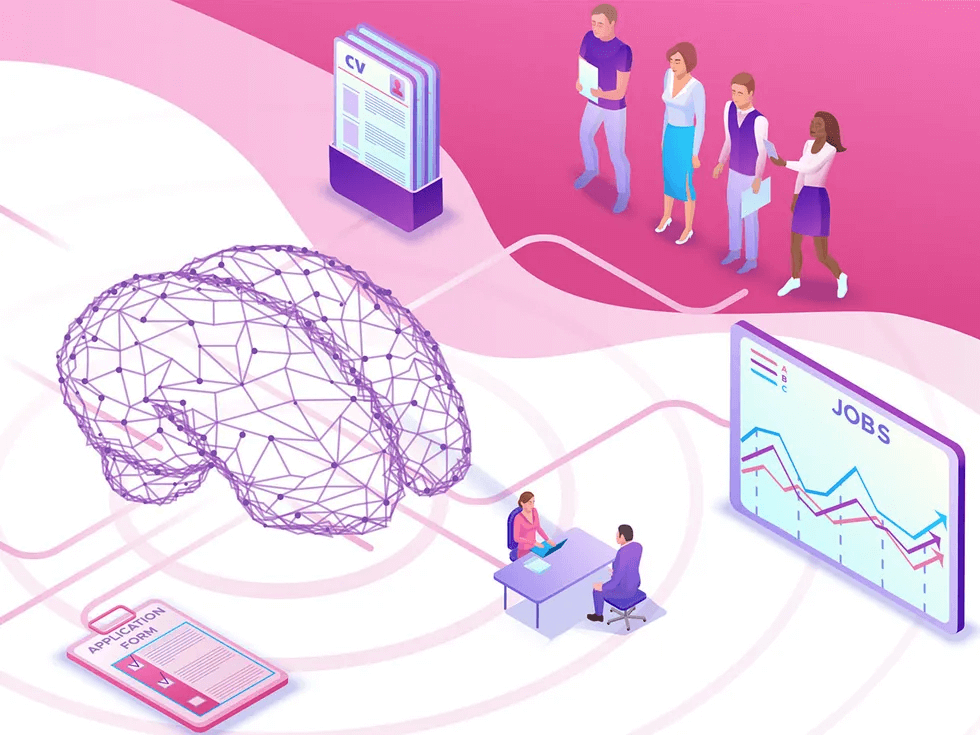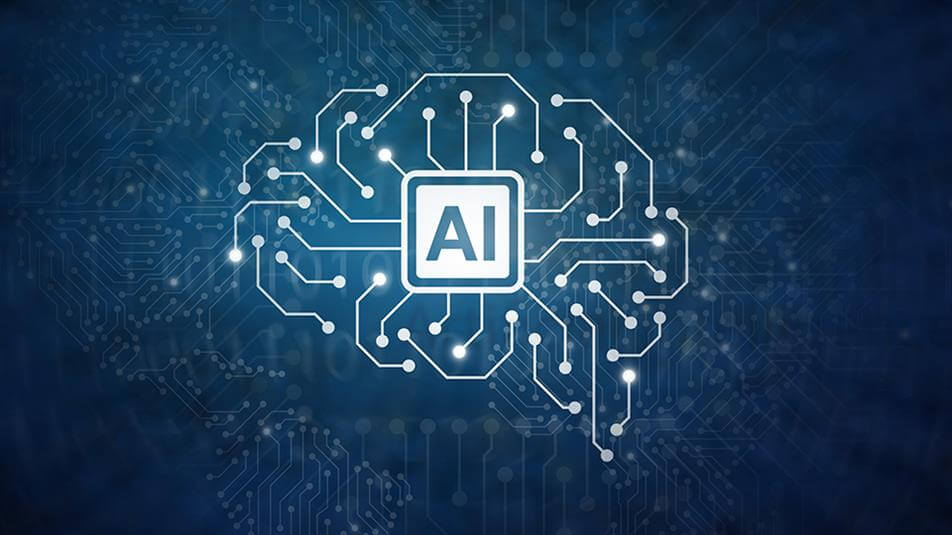
In a world where technological advancements continue to reshape industries, artificial intelligence (AI) has emerged as a driving force behind transformative changes. Its allure in the realms of cybersecurity, finance, and sales cannot be overstated. But what exactly is it about AI that makes it such a game-changer? Let’s delve deep into the AI-driven revolution, exploring its impact, applications, and future prospects in these three critical sectors.
Unveiling the AI Magic: A Paradigm Shift in Cybersecurity
Question: How does AI revolutionize cybersecurity?
AI has unleashed a cybersecurity revolution, offering proactive defense against evolving threats. Leveraging machine learning algorithms, AI systems can analyze vast datasets, identify anomalies, and detect potential breaches faster than ever before. This means real-time threat detection, helping companies stay one step ahead of cybercriminals.
Key Applications of AI in Cybersecurity:
- Intrusion Detection: AI algorithms continuously monitor network traffic, spotting unusual patterns and intrusions.
- Behavioral Analysis: AI learns normal user behavior, flagging deviations that may indicate malicious activity.
- Threat Intelligence: AI sifts through the vast threat landscape, providing real-time threat intelligence to security teams.
AI is not limited to detecting known threats; it can also identify zero-day vulnerabilities, which are previously undiscovered weaknesses in software or hardware. This proactive approach is a game-changer in an era where cyberattacks are becoming increasingly sophisticated.
Benefits:
- Faster threat detection and response.
- Reduction in false positives, ensuring that security teams focus on genuine threats.
- Enhanced protection against zero-day attacks, as AI can recognize and mitigate new threats swiftly.
But the AI allure in cybersecurity doesn’t stop there. AI-driven solutions can also automate incident response, allowing for rapid containment of threats. They can prioritize vulnerabilities that pose the most significant risk and even predict future attack trends based on historical data. The result? A cybersecurity landscape that is more robust and resilient than ever before.
Finance 2.0: AI’s Role in Financial Transformation

Question: How is AI reshaping the finance industry?
AI’s allure in finance is rewriting the rules of the game. From algorithmic trading to personalized banking experiences, AI is driving efficiency and innovation at every turn. The financial sector is no longer just about dollars and cents; it’s about data and insights.
AI-Powered Finance Applications:
- Algorithmic Trading: AI analyzes market data, making split-second trading decisions for maximum returns.
- Risk Assessment: AI models assess credit risk, making lending decisions with unprecedented accuracy.
- Chatbots and Virtual Assistants: AI-driven chatbots provide customer support, answer queries, and even execute transactions.
Algorithmic trading, powered by AI, is a prime example of how technology is reshaping the financial landscape. AI can analyze vast amounts of market data in real-time, identifying trends and executing trades faster and more accurately than human traders. This not only increases profitability but also reduces the risk associated with emotional trading decisions.
When it comes to risk assessment, AI’s analytical capabilities shine. Machine learning models can evaluate a borrower’s creditworthiness by considering a multitude of factors, including credit history, income, and even non-traditional data sources like social media activity. This results in more accurate lending decisions and lower default rates for financial institutions.
Chatbots and virtual assistants are transforming customer interactions in the finance sector. They provide 24/7 support, answer customer queries promptly, and even assist in executing transactions. Moreover, these AI-powered assistants can analyze customer data to offer personalized financial advice, making banking experiences more engaging and customer-centric.
Benefits:
- Enhanced risk management, reducing the likelihood of bad loans.
- Improved fraud detection, protecting both financial institutions and their customers.
- Personalized financial advice, fostering stronger customer relationships.
Sales Reimagined: AI’s Salesmanship Secrets

Question: How does AI transform the sales landscape?
Sales, often considered the heart of any business, is undergoing a profound transformation with AI. The days of cold calling and generic pitches are fading into obscurity. AI empowers sales teams with data-driven insights, enabling them to engage with prospects in a more personalized and effective manner.
AI-Infused Sales Techniques:
- Lead Scoring: AI predicts which leads are most likely to convert, allowing sales teams to prioritize efforts.
- Sales Forecasting: AI analyzes historical data to forecast sales trends accurately.
- Chatbots for Sales: AI-driven chatbots engage with website visitors, answer questions, and even guide them through the purchase process.
Lead scoring is a game-changer for sales teams. AI evaluates leads based on various criteria, such as demographics, behavior, and past interactions. This ensures that sales efforts are focused on leads with the highest potential for conversion, resulting in improved sales efficiency and higher conversion rates.
Sales forecasting has traditionally been a challenging task, often relying on gut feeling and historical data. AI changes this by analyzing vast datasets and identifying patterns that humans might overlook. This results in more accurate sales predictions, helping businesses allocate resources effectively and plan for growth.
Chatbots for sales are becoming increasingly popular. They provide instant responses to customer queries, ensuring that potential leads don’t slip away due to slow response times. Additionally, these chatbots can be programmed to provide product recommendations based on customer preferences, further enhancing the customer’s shopping experience.
Benefits:
- Higher conversion rates, leading to increased revenue.
- Reduced sales cycle duration, allowing for quicker deal closures.
- Improved customer engagement and satisfaction, fostering long-term customer relationships.
The Road Ahead: AI’s Promising Future
Question: What lies ahead for AI in these industries?
As AI continues to evolve, its allure in cybersecurity, finance, and sales is set to grow stronger. In cybersecurity, AI will become even more adept at countering sophisticated threats. Finance will witness the rise of AI-powered robo-advisors and blockchain integration. In sales, AI will further personalize customer experiences through advanced analytics and natural language processing.
But, as with any technological advancement, challenges remain. Ethical considerations, data privacy, and the need for skilled AI professionals are among the hurdles that must be addressed.
Table: Challenges and Prospects
| Sector | Challenges | Prospects |
| Cybersecurity | AI bias and ethical concerns | AI-driven proactive defense |
| Finance | Data privacy and regulatory hurdles | Enhanced customer experience through AI |
| Sales | Adoption barriers and data integration challenges | Improved sales effectiveness and ROI |
In conclusion, the allure of AI in industry, specifically in cybersecurity, finance, and sales, is nothing short of a catalyst for transformative change. It empowers organizations to stay ahead in the ever-evolving landscape of technology and business. The journey has just begun, and the possibilities are limitless. As AI continues to weave its magic, those who embrace its potential are poised for success in the digital age. The future is bright, and AI is leading the way towards a more efficient, secure, and customer-centric future in these critical sectors.
Frequently Asked Questions (FAQ) about AI Allure in Industry: Catalyst of Change in Cybersecurity, Finance, and Sales
Got questions about the transformative impact of AI in cybersecurity, finance, and sales? You’re in the right place. Here are some frequently asked questions to shed light on this fascinating topic.
- What is AI’s role in cybersecurity?
Answer: AI plays a pivotal role in cybersecurity by enabling proactive threat detection. It uses machine learning algorithms to analyze large datasets, identify anomalies, and detect potential security breaches in real time. This empowers organizations to respond swiftly to evolving threats.
- How does AI improve financial services?
Answer: AI has revolutionized the finance industry by enhancing efficiency and innovation. It powers algorithmic trading, assesses credit risk more accurately, and provides personalized banking experiences through chatbots and virtual assistants.
- Can AI really improve sales performance?
Answer: Absolutely! AI transforms sales by offering data-driven insights. It predicts which leads are most likely to convert, forecasts sales trends, and engages with customers through chatbots. This leads to higher conversion rates, reduced sales cycle duration, and improved customer engagement.
- What are the challenges in adopting AI in these industries?
Answer: Challenges include AI bias and ethical concerns in cybersecurity, data privacy and regulatory hurdles in finance, and adoption barriers and data integration challenges in sales. Addressing these challenges is essential for successful AI adoption.
- What does the future hold for AI in these industries?
Answer: The future is promising. In cybersecurity, AI will become more adept at countering threats. Finance will see AI-powered robo-advisors and blockchain integration. In sales, AI will personalize customer experiences further through advanced analytics and natural language processing.
- How can organizations embrace AI’s potential?
Answer: To embrace AI’s potential, organizations should invest in AI talent, address ethical concerns, and prioritize data privacy. They should also stay updated with the latest AI trends and continuously adapt their strategies to harness the full power of AI in their respective industries.